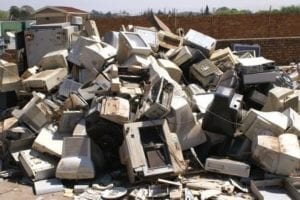The Ugandan Ministry of Information and Communications Technology (ICT) has developed a National E-waste Management Strategy to deal with what has become one of the fastest growing waste streams in the world.
With support from the United Nations Development Programme through the Ministry of Water and Environment, the ICT developed a strategy which specifies the implementation mechanism for the National E-waste Management Policy. In order to increase participation and ownership of the strategy, the preparation of the strategy was largely consultative, involving all government lead agencies and key stakeholders, as well as the private sector. The strategy sets out nine key strategic actions. These are:- set up an e-waste coordinator to supervise and address all management issues for smooth implementation of the e-waste strategy
- review and update the legal and institutional framework for e-waste management, and support enforcement of laws, regulations and standards
- raise awareness and advocate for e-waste management across all stakeholders and general public
- maintain statistical records of imported electrical and electronic equipment
- carry out baseline surveys to inform e-waste interventions
- mainstream e-waste issues in all MDAs and the private sector
- invest in e-waste handling and disposal infrastructure, including a modern e-waste recycling facility
- mobilise human, financial, and technical resources for e-waste management
- set up and operationalise an e-waste fund
The budget for e-waste strategy implementation over the five year period has been estimated at 7.95 billion Shillings (±R32 million). There is a provision for 30 billion Shillings (±R122 million) as a contribution to a public private partnership for a modern e-waste recycling facility. It is also expected that by the end of the planning period, contributions to the e-waste fund should reach at least 30% of the e-waste management budget.
This strategy will be reviewed after three years, and again after five years. It is expected that with implementation of the identified actions, the e-waste challenge in Uganda will largely be addressed. Benchmarking good practices and training in other developed countries is also proposed to enrich the e-waste strategy implementation process.






